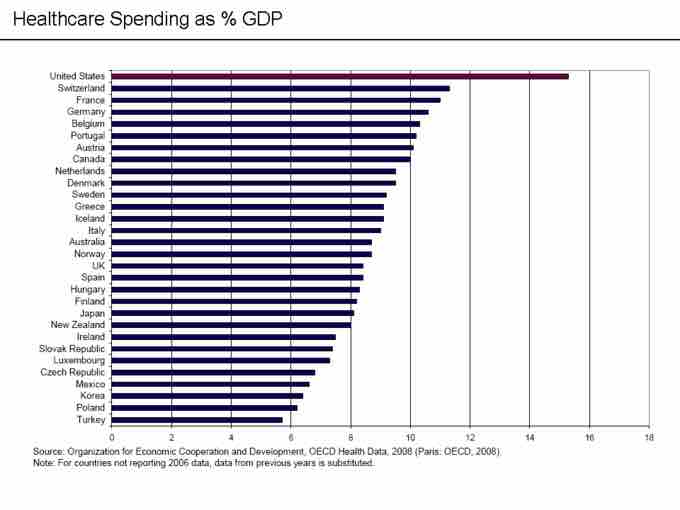A combination of wages and benefits such as health insurance, vacation time, and retirement plans have become an expected form of compensation for today's employees. As the search for high-quality workers becomes more difficult and health care costs increase, it has become important to offer fringe benefits to gain a competitive advantage. Common benefits include the following:
- Relocation assistance
- Sick leave
- Company cars
- Medical and dental insurance plans
- Vacation/paid leave
- Profit sharing
- Retirement plans
- Leisure activities on work time, such as in-office exercise facilities
- Long-term and life insurance
- Education funding
- Legal-assistance plans
- Child-care plans
- Miscellaneous employee discounts
- Free lunches at work
Rising Healthcare Costs
Healthcare costs have risen at a rate that makes it difficult for governments, businesses, and individuals to keep up. Without health insurance, individuals can easily be forced into poverty by trying to obtain medical care on their own.

International health care cost comparison
The above chart underlines the struggle in the United States to pay for health care: U.S. healthcare costs exceed those of other countries relative to the size of the economy (GDP). Health care, due to poor management of the industry, is a leading cause of poverty in the U.S. and is a crucial benefit companies can offer employees.
While the cost negatively impacts businesses, it also offers an opportunity through competitive advantage. This is to say, organizations can capture lower health insurance costs per employee due to scale economies, allowing organizations an important bargaining chip in the hiring process.
Stock Options
Another key benefit for top talent is the offering of stock options. While stock as compensation has unique taxation rules, which can make it more or less attractive for specific people, it also has the added benefit of motivating the employee (particularly top management) to work to achieve broader organizational success. Stock options essentially mean ownership of the company, and this company ownership (i.e., equity) drives positive employee behavior.